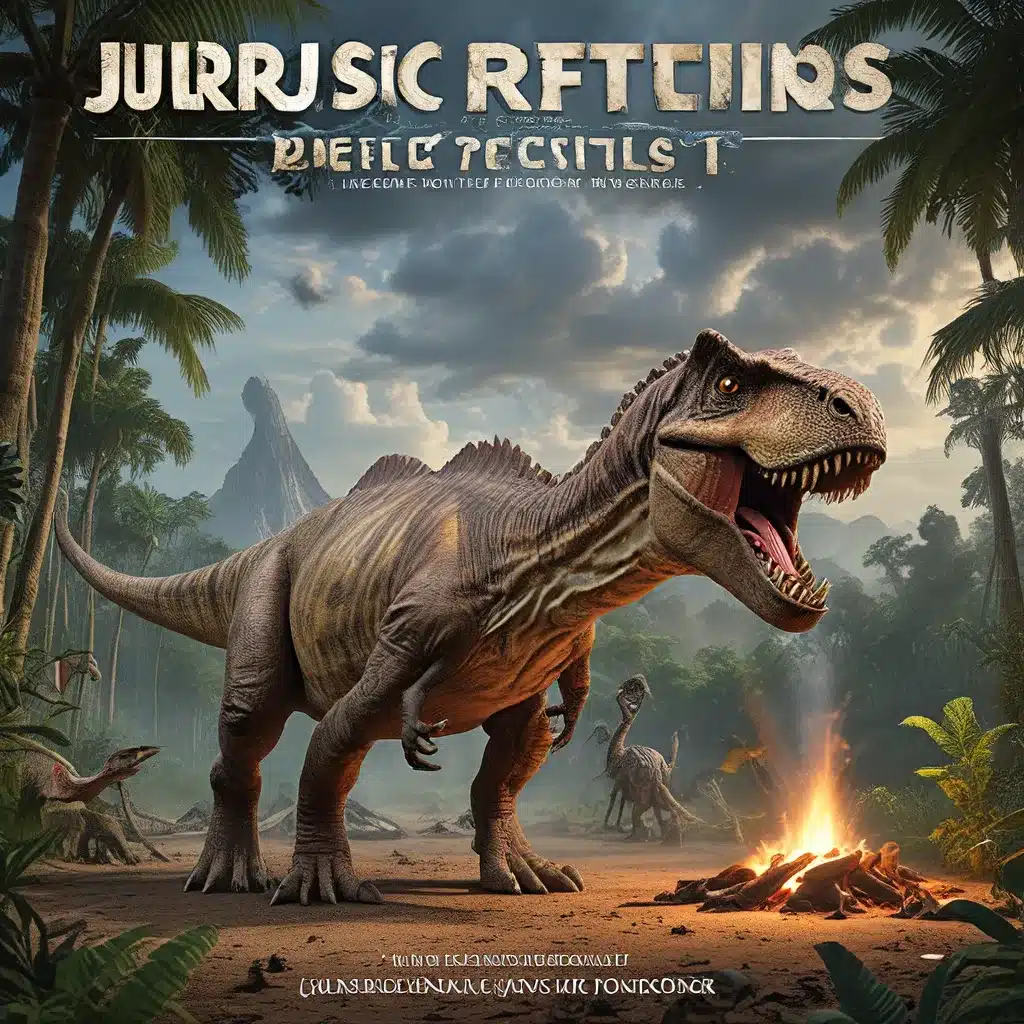
In the vast expanse of Earth’s history, few eras have captivated the human imagination as profoundly as the Jurassic period. The enigmatic creatures that once roamed this primordial landscape, from the towering Brontosaurus to the ferocious Velociraptor, have inspired countless stories, films, and scientific pursuits. As we delve deeper into the prehistoric world, we uncover not only the marvels of these ancient beings but also the profound lessons they offer about our own relationship with technology, nature, and the fragility of life.
Dinosaurs and the Jurassic Conundrum
The tale of the Jurassic Park franchise, born from the mind of author Michael Crichton, has become a cautionary legend in its own right. In the original novel and its subsequent film adaptations, the promise of reviving long-extinct dinosaurs through the power of genetic engineering ultimately leads to a harrowing and chaotic reckoning. This narrative reflects a deep-seated unease about the unchecked application of technological advances, a concern that has only grown more prevalent in our modern era.
As Jim, a thoughtful observer, noted, the Jurassic World movies serve as a mirror, reflecting our own struggles with the implications of human dominion over nature and the potential consequences of our actions. The relentless pursuit of profit, the hubris of believing we can control the unpredictable forces of life, and the tribalism that can divide us when faced with existential threats – these are all themes that resonate profoundly with the challenges we confront in the real world.
Prehistoric Lessons for the Modern Age
The Jurassic tales serve as a powerful allegory, reminding us that the technological prowess we wield is not an absolute power, but rather a responsibility that requires careful consideration and ethical deliberation. Just as the scientists in the Jurassic Park narrative underestimated the intelligence and resilience of their dinosaur creations, we too must be mindful of the unintended consequences that can arise from our own technological advancements.
The warning inherent in these stories extends beyond the realm of genetic engineering and theme parks. It speaks to the broader societal challenges we face, such as the divisive nature of social media, the ethical quandaries surrounding artificial intelligence, and the looming threat of climate change. In each of these domains, we are confronted with the realization that the tools we have created can rapidly spiral beyond our control, with potentially catastrophic results.
Embracing the Complexity of the Prehistoric World
As we ponder the lessons of the Jurassic period, it becomes evident that the true marvel lies not only in the existence of these ancient creatures but in the intricate web of relationships and adaptations that allowed them to thrive. The Giganotosaurus, the Velociraptor, and the Brontosaurus were not mere beasts, but complex organisms shaped by the forces of evolution and the demands of their environment.
By immersing ourselves in the study of dinosaurs and their prehistoric world, we gain a deeper appreciation for the interconnectedness of life and the delicate balance that sustains it. This understanding can inform our approach to the contemporary challenges we face, reminding us that coexistence and collaboration may be the keys to navigating an uncertain future.
Embracing the Unexpected in Archaeology and Paleontology
The field of paleontology has long been a source of fascination, as researchers unearth the fragmentary remains of long-extinct species and piece together the intricate tapestry of life on Earth. Recent discoveries, such as the unearthing of new dinosaur species and the study of ancient ecosystems, have continued to challenge our assumptions and expand our understanding of the prehistoric world.
These ongoing archaeological and paleontological endeavors serve as a reminder that the story of life on Earth is ever-evolving, with new chapters waiting to be discovered. By embracing the unexpected and remaining open to the possibility of new insights, we can avoid the same pitfalls that befell the hubris-driven scientists of the Jurassic Park narrative.
Fostering Responsible Innovation and Coexistence
As we navigate the complex terrain of the modern world, the lessons of the Jurassic period offer a profound call to action. We must approach the technological advancements at our fingertips with a deep sense of responsibility, recognizing that our actions can have far-reaching consequences.
Just as the Jurassic World films emphasize the need for trust, cooperation, and coexistence between humans and the resurrected dinosaurs, we must strive to cultivate these qualities in our own relationships with the natural world and with one another. By embracing the wisdom of the prehistoric past, we can chart a course towards a future where innovation and environmental stewardship go hand in hand, ensuring the preservation of life in all its wondrous forms.
The Jurassic period may have long since passed, but its enduring legacy serves as a timeless reminder of the fragility and resilience of our planet, the interconnectedness of all living beings, and the profound responsibility we bear as the custodians of this remarkable world.


